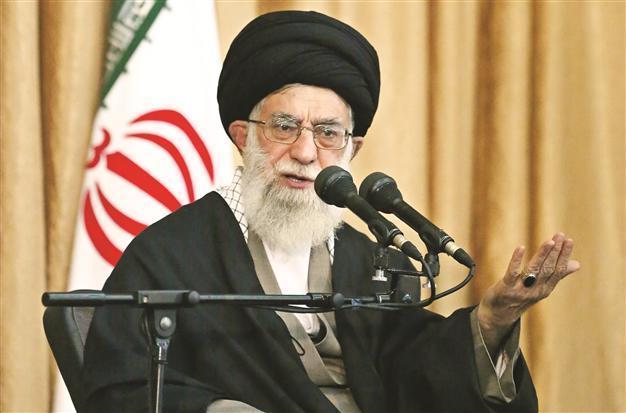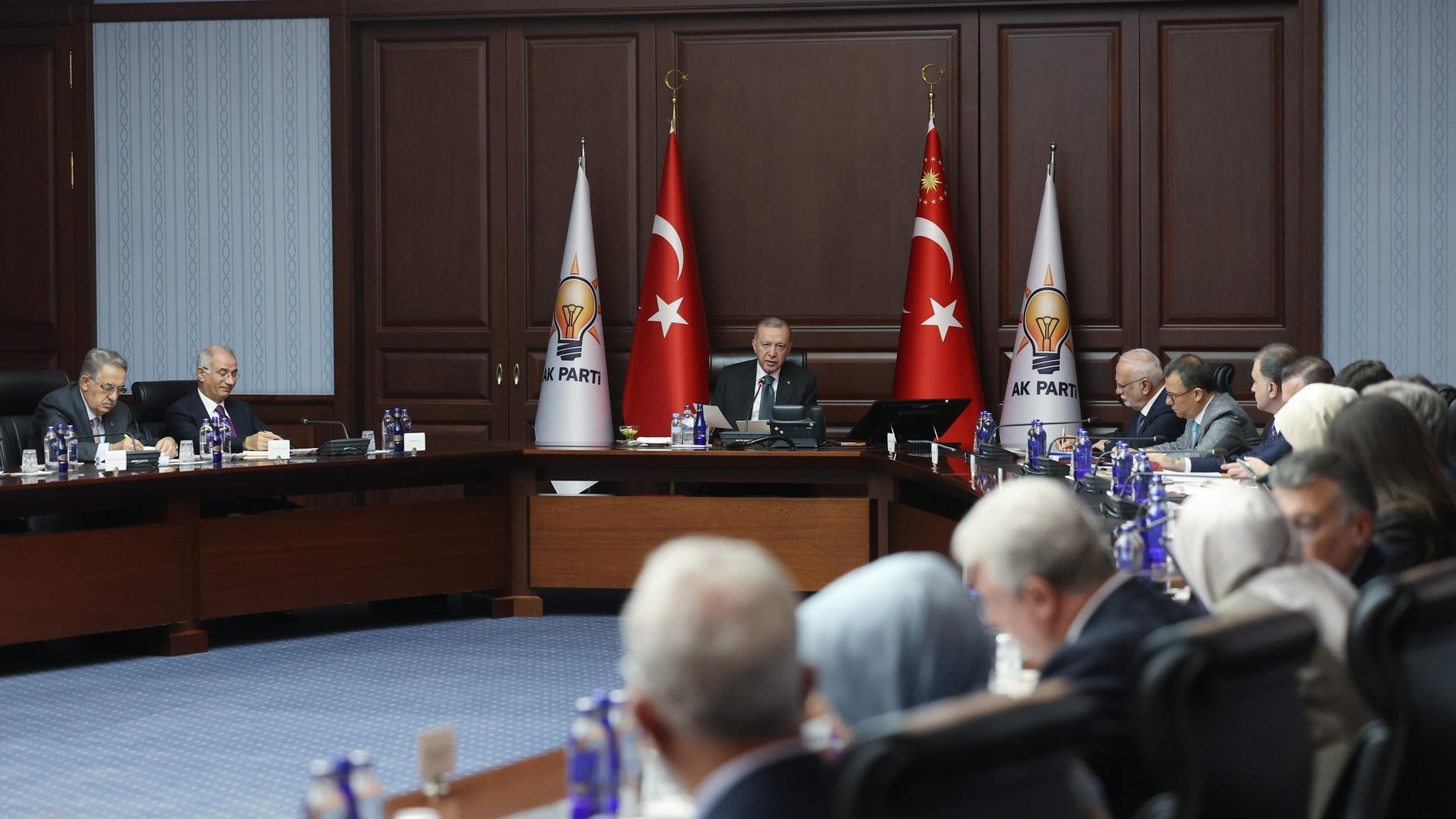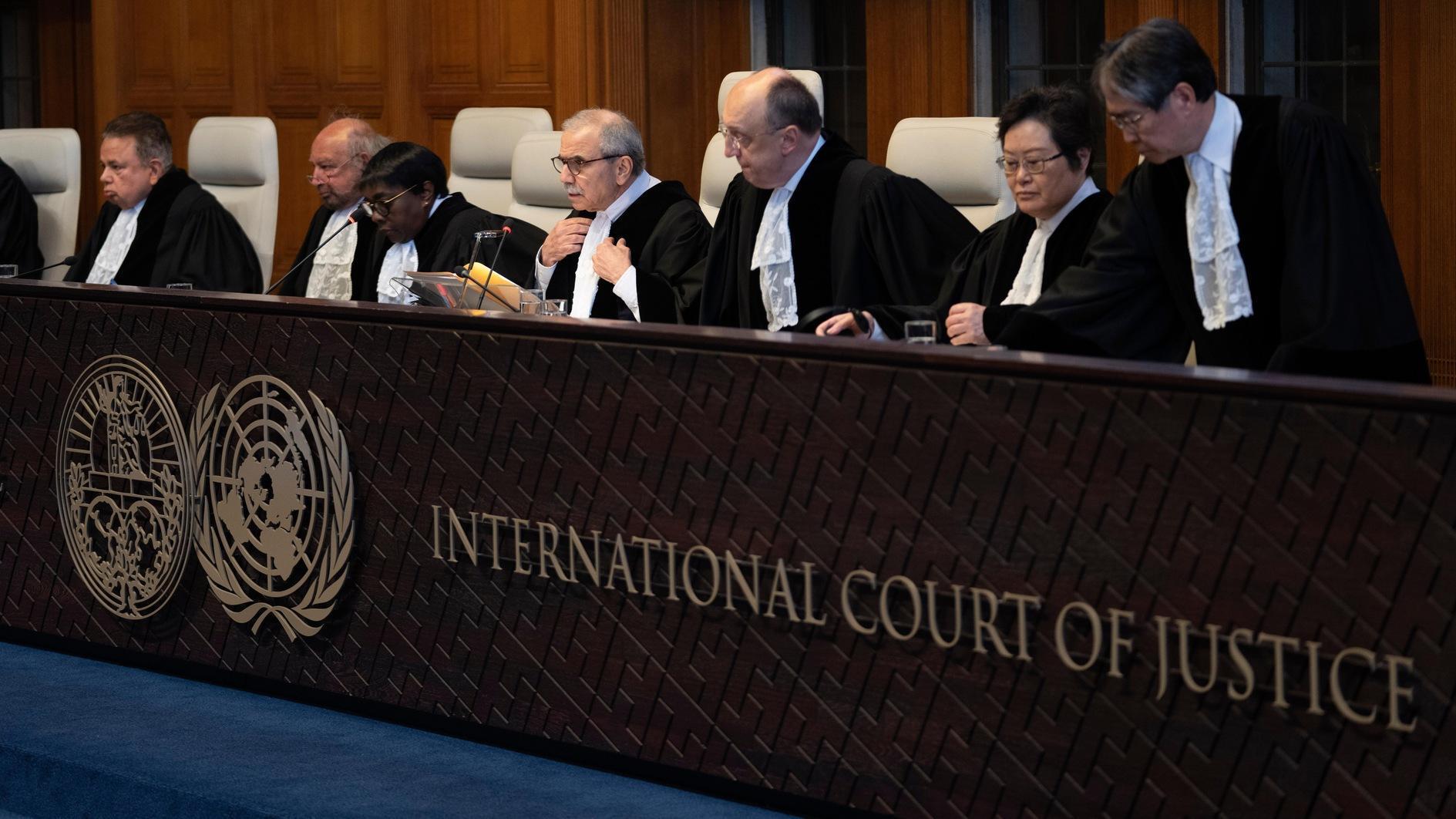Ahmadinejad insists in visit to Evin prison
TEHRAN / UNITED NATIONS

Supreme Leader Khamanei speaks to a group of Basij militia in this file photo. Recent prison row between is a sign of rift between Ahmadinajad and Khamanei. AP Photo
Iranian President Mahmoud Ahmadinejad on Oct. 22 insisted he still wants to visit Tehran’s notorious Evin prison, where a top aide is jailed, a day after the judiciary rejected his request to see the jail, the presidency website reported.“Citing different articles in the constitution... I am determined to fully execute the constitution and fundamentally reform the country’s affairs,” he said in a letter to judiciary chief Ayatollah Sadeq Larijani, compiled from Agence France-Presse. “I am certain that by inspecting the prisons and some courts I will be able to study how the constitution and the people’s basic rights are observed. I will report [my findings] to the great nation and the supreme leader,” he added. On Oct. 21, chief prosecutor and judiciary spokesman Gholam Hossein Mohseni Ejeie said the timing of Ahmadinejad’s request suggested there was “a political dimension” to it. He added: “In this situation, it is not appropriate.”
Mohseni Ejeie suggested Ahmadinejad’s sudden interest in Evin was linked to “a person affiliated to [the government] in prison” -- presidential press adviser Ali Akbar Javanfekr. Javanfekr, Ahmadinejad’s press adviser and head of the state news agency IRNA, was sent to Evin in September to serve a six-month sentence for publishing an article deemed offensive to public decency, Reuters reported. He was also convicted of insulting Supreme Leader Ayatollah Ali Khamenei, Iran’s highest authority, on his personal website. Iranian media said Ahmadinejad had originally planned an Oct. 8 visit to Evin, where most of the inmates are political prisoners.
Iran keeps up high number of executions: UN expert
Iran, which on Oct. 22 executed 10 accused drug traffickers, is maintaining its record-setting use of capital punishment, a U.N. investigator said.
Ahmad Shaheed, a former foreign minister for the Maldives, said that more than 300 people had been recorded executed in the first eight months of the year but the figure was probably much higher as Iran has restricted information this year. He reported 670 executions in 2011 in Iran, which has the world’s highest per capita use of the death penalty. “I don’t see it as reducing,” said the U.N. special rapporteur on human rights in Iran, who will present his latest report to a U.N. General Assembly committee today. Shaheed said he had been “shocked” to hear of the execution of 10 men in a Tehran jail after they had been found guilty of trafficking narcotics.
















